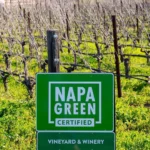How Premier Wine Regions Are Adapting to Climate Change
-
 Abby Schultz | PENTA Magazine
Abby Schultz | PENTA Magazine
- |
Two years ago, Boris Champy left his role as estate manager for Clos des Lambrays, an esteemed Grand Cru in Burgundy’s Morey-Saint-Denis village of Côte de Nuits, to take an entrepreneurial turn in the hills above the town of Beaune.
Six-hundred feet above the center of Burgundy, Champy knew he could grow vines in Hautes-Côtes, an area that may not have the prestige of Côte de Nuits, but is cooler, giving him an edge as the climate changes and Burgundy warms.
As with most agricultural crops, vineyards around the world are experiencing the effects of climate change right now. In Burgundy—home to revered, collectible wines such as Domaine de la Romanée Conti, Domaine Leflaive, and Comte Georges de Vogüé —heat waves, drought, and frost in the past few years have caused some top estates to cut back on volume, giving Champy’s wines—from a less renowned region—a chance to get attention.
“I hope consumers buy my wines because they like them, because the wines are good, but I also know the supply in Burgundy is very short and the supply is short because of climate change,” Champy says.
Producers globally are working to ensure the quality of their wines as climate change sparks shifts in rainfall levels, temperature, and harvest dates. In premier wine regions of the world—Burgundy, Champagne, and Bordeaux in France; Tuscany and Piedmont in Italy; Napa Valley in California—reputations, and the big sums these wines can command, are at stake.
But there is no singular solution.
Winemakers such as Champy are moving to higher ground, but he is also growing Gamay and Aligoté—varieties that are sanctioned within Burgundy, but are far less common. Experimenting with grape varieties that could potentially thrive in warmer climates while producing comparatively great wine is a route some wine regions are taking to adapt (see sidebar).
In Napa Valley, Dan Petroski, the winemaker at Larkmead Vineyards, monitors annual weather patterns. A few years ago he determined that a combination of newly planted vines, a stylistic choice to reduce sugar (and ultimately alcohol) levels, and increasingly hot days, meant he was picking grapes about three weeks earlier than when he started working at the winery in 2006.
One way Petroski has responded to climate change has been to implement sustainable practices in Larkmead’s vineyards and winery, such as increasingly incorporating no-till farming—a process that restores soil and reduces the release of carbon—and reducing water use in the cellar. There are also beehives on the property and solar panels on the winery roof. The land and winery are each certified by Napa Green, a nonprofit providing third-party certification of sustainable winemaking and grape-growing in the valley.
These efforts will help slow the effects of climate change, but they won’t vanquish the hotter, drier days in Napa.
Near the city of Calistoga, where Larkmead sits, Petroski is planting a 3-acre plot with an array of grape varieties beyond the Cabernet Sauvignon, Cabernet Franc, and Merlot, that dominate his ethereal wines today. He’s testing out Petite Sirah, Zinfandel, and Chenin Blanc—which grew in the vineyards years ago—and Mediterranean varieties such as Touriga Nacional from Portugal and Tempranillo from Spain.
“The last thing we can do under these conditions is wait it out—if we wait it out until 2040 to plant these things, we’re going to be in trouble,” Petroski says.
But Rodrigo Soto, estate manager at Quintessa, located on 280 acres on the eastern edge of Napa Valley’s Rutherford region, south of Calistoga, believes focusing on different grape varieties as a solution ignores the potential for plants to adapt. Instead of seeking out new plants, or new places, Quintessa, which makes deeply layered Bordeaux blends from its biodynamically farmed property, is exploring how it can change its vineyard practices to adapt to the changing environment and the changing needs of the vines.
“We have a close relationship with our estate—we don’t buy grapes, we work with the grapes that we grow,” Soto says. “When you think like that, you realize you need to make it work.”
One way Quintessa adapts to a searing-hot season is through vineyard management techniques, such as shifting the canopy of leaves growing on its vines. Leaving lateral sprouts to grow instead of cutting them back allows for extra shade on the grape clusters, says Rebekah Wineburg, Quintessa’s winemaker. When it comes time to replant, the winery may consider grafting vines onto rootstocks that may be more adaptable to the expected changes in climate.
To those who ask, will a warming climate spell ruin for the world’s best wines? Adrian Bridge, CEO of major Portuguese wine producer Fladgate Partnership, demurs.
Consider that growing heat in Bordeaux, for example, gives Cabernet Sauvignon a better chance at reaching full ripeness, he says. “Maybe the best Bordeaux are the ones to come rather than ones that have been.”
To Champy, all options for dealing with climate change should be considered.“You work with temperature, you work with things living in the soil, with your roots, and for me, it’s what Darwin says—it’s not the strongest or the smartest (who survive), it’s the most adaptable,” he says. Above all, “we have to become better farmers.”
This article appeared in the September 2021 issue of Penta magazine
About napa green
About Napa Green: The Napa Green 501c3 is a global leader in sustainable winegrowing, setting the highest bar for sustainability and climate action in the wine industry. Napa Green facilitates whole system soil to bottle certification for wineries and vineyards, and provides the expertise, boots-on-the-ground support, and resources to continually improve. Learn more at https://napagreen.org/participating-members/.
Anna Brittain
Napa Green
+1 805-636-3329
email us here
Visit us on social media:
Facebook
LinkedIn
Instagram



